How to Build a Travel Mobile App in 2022: Core Features, Technologies, and Costs
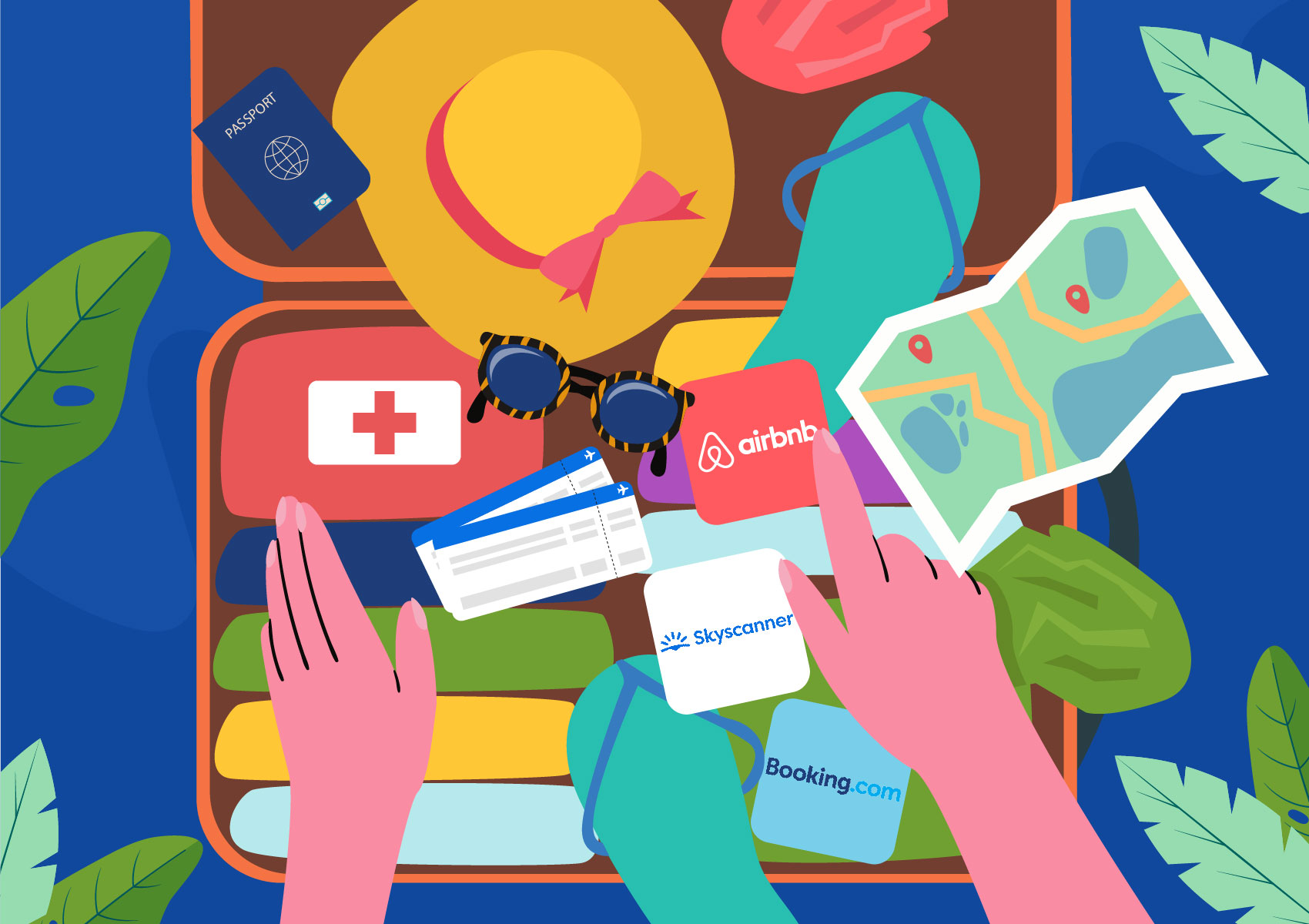
This article is an in-depth guide on how to build a travel app. We share our proven tips, talk about the required tech stack, and provide a cost estimation.
The times when travel agencies planned all trip details are gone. With global modernization and innovation, the travel industry has become digital and mobile.
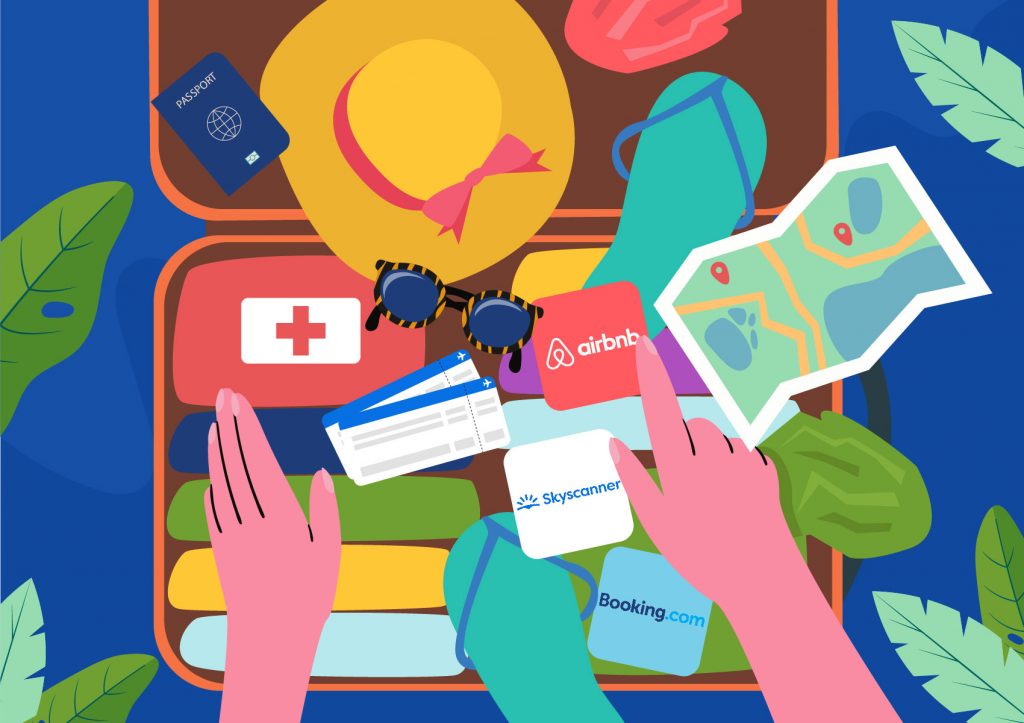
According to a recent survey, 88% of travelers prefer online booking over offline. That is why mobile travel apps are in high demand today. And despite the pandemic impact on this industry, travel apps and online booking are getting more popular than ever before. Hence, if you’re all set to develop your travel mobile app, now is a perfect time.
So, let’s look at what to expect when building a travel mobile app from scratch.
Types of travel mobile apps you can build
Today, plenty of applications help people arrange their travel, transfer, accommodation, entertainment, and everything they might need during their trips. Accordingly, all travel applications can be divided into several logical categories. Let’s have a look at what types of travel mobile applications exist in the market and the key players representing each category.
Travel planning app
Planning is an essential part of any trip. This type of app helps users find travel packages and vacation deals, make a travel reservation, rent a car, analyze reviews, and track loyalty points. In a nutshell, a trip planning app is a pocket assistant keeping all travel details in one place. These apps can be developed both for travel agencies and individual consumers directly. One of the top-rated travel planning apps is Expedia. And here is how it looks:
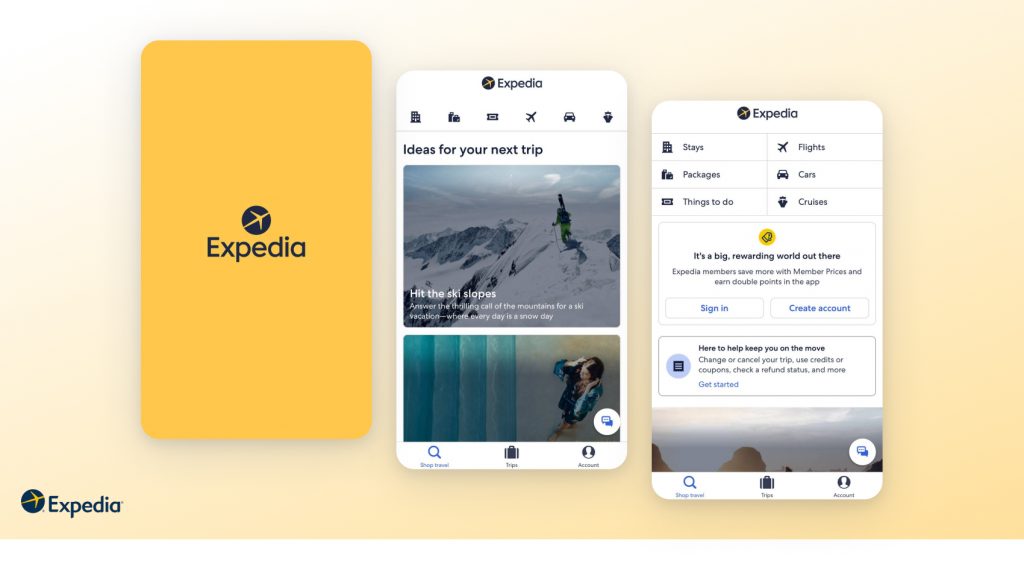
Flight booking application
Sometimes buying tickets and choosing a flight can be quite an uphill task. That’s why flight booking applications are now especially popular among travelers. Users can choose various flight options, compare prices, book the flight, and finally buy a ticket.
For example, Skyscanner is an industry giant among famous flight booking apps. As the name suggests, it scans all available flights and gathers them in one place. It features a fast search and compares all options according to the user’s request. Travelers appreciate this app’s intuitive design, easy booking procedure, and best deals from hundreds of companies.
One more useful feature of a flight booking app is a deals alert. It notifies users about current deals, cheap flights, and other personalized offers from airlines.
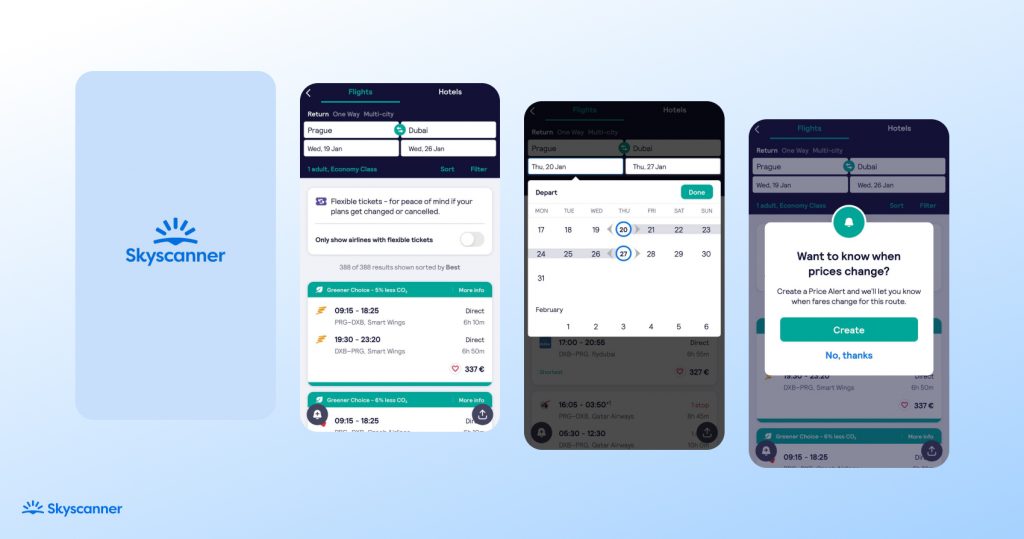
Accommodation booking app
This category of apps connects hotels and property owners with travelers who look for accommodation during their trips. For instance, Airbnb, Misterb&b, Booking.com, and Hotels.com are well-known accommodation booking apps. They offer a wide range of hotels and apartments worldwide with their prices, availability, and reviews from guests.
So, travelers can book a room in advance and pay via the app. Furthermore, some hotel reservation apps, like Airbnb, provide additional services such as restaurant listings and sightseeing guides in the required locale.
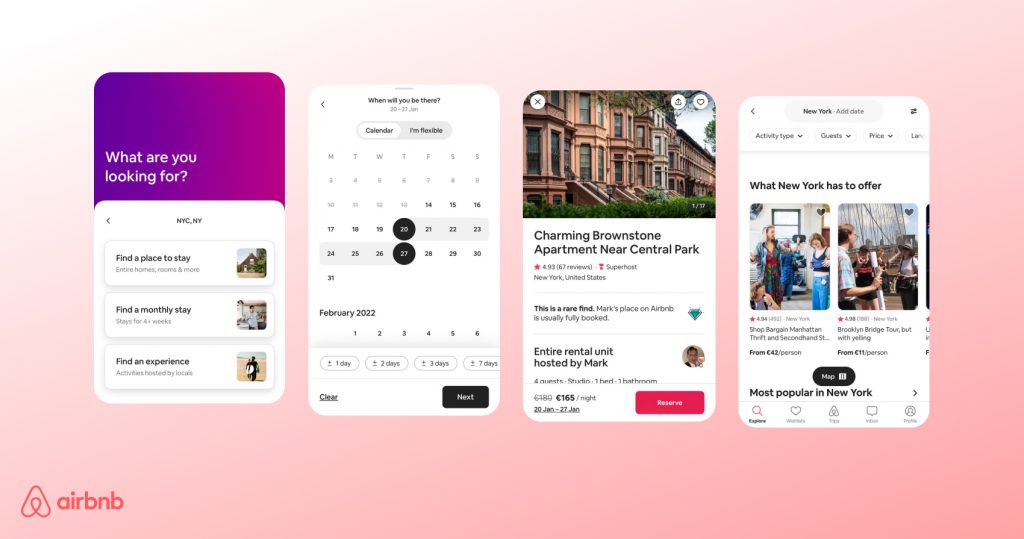
Travel guide apps
Travel guide apps serve as a personal companion for travelers looking for entertainment, local attractions, events, restaurants, city tours, and other adventures.
For example, Culture Trip mobile app is a popular travel guide among users today. It features extra useful travel content from locals and travel experts in a particular destination. With the help of travel guide apps, users can save interesting spots, create travel itineraries, bookmark them in the app, and view the whole plan on the map.
Moreover, during these pandemic times, Culture Trip has designed an alternative traveling experience – virtual meditation, cooking, painting, and other classes so as not to leave any traveler bored during trips.
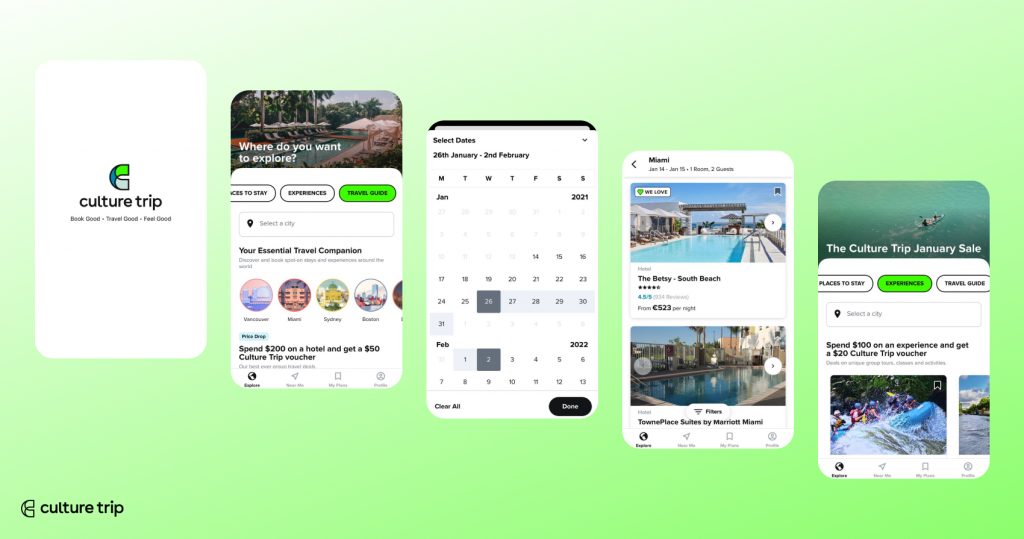
Navigation app
Navigation apps like Waze, for instance, help travelers get from the airport to the required destination in the city. Waze uses real-time traffic data to choose the shortest route, notifies when the user needs to leave to arrive on time, and alerts about accidents, constructions, or police activity on the roads.
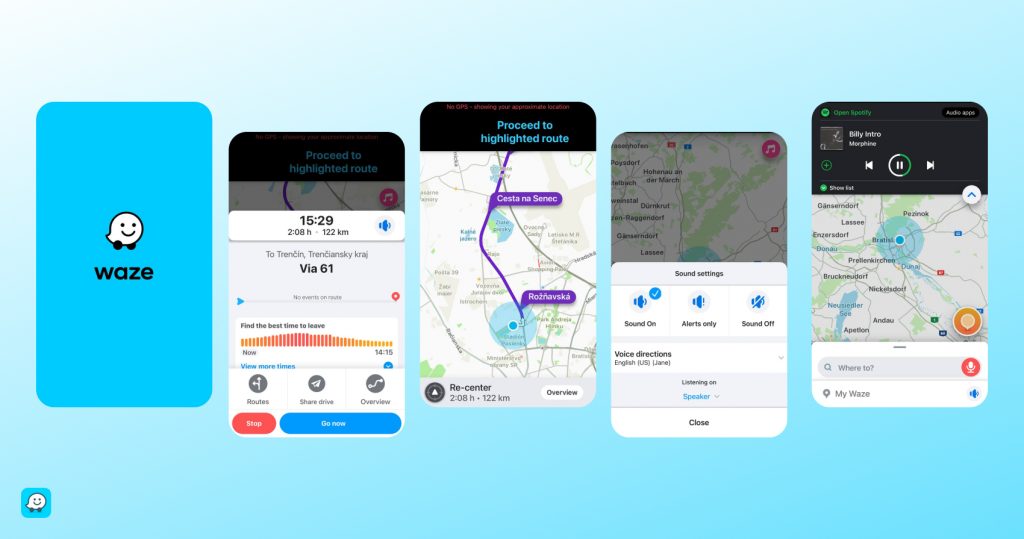
What are the essential features of a travel mobile app?
Now that you know about the travel app categories, let’s proceed with the core features required to build a mobile app for the travel industry. We also share examples of how these features are implemented by the leading travel apps today.
Registration
Almost any app has a sign-up feature. Users need to register their accounts and enter personal data to start using the app. In most cases, people don’t like lengthy sign-up procedures, so let them quickly join the app via the phone, email, Facebook, or Google accounts. Speaking about personal data, travel apps usually require name, email, phone number, age, and country.
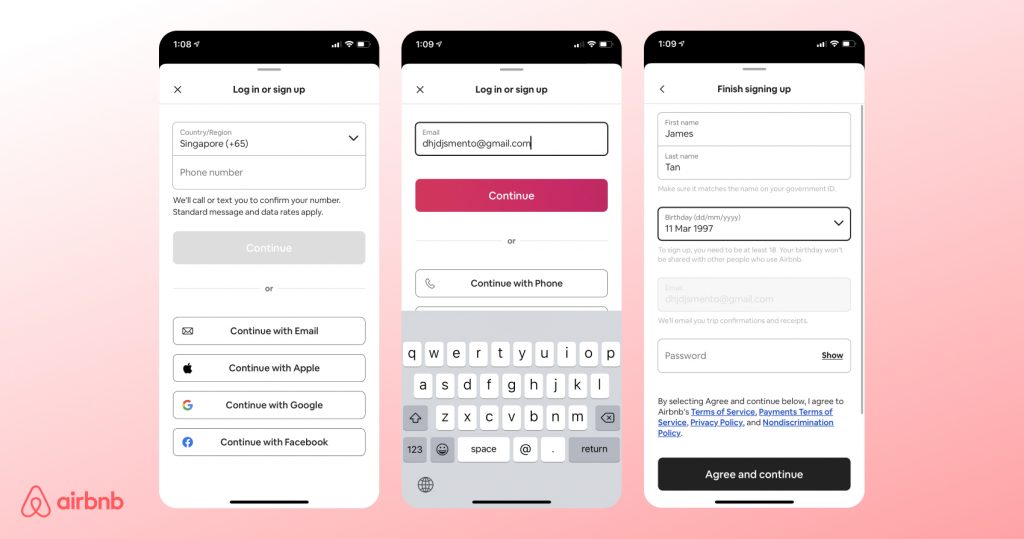
Search
The “search” feature is the centerpiece of any travel mobile app. Whether a user searches for airline tickets, accommodation, or city tours, the search function has to be intuitive and easy to use for anyone. Make the search button easily discoverable on the screen.
Furthermore, try not to overwhelm the user with dozens of search options, but at the same time include the ones they’re most expecting to find.
For example, when searching for tickets in the Skyscanner app, users need to specify the destination, decide whether the trip is one-way or not, and choose the flight dates.
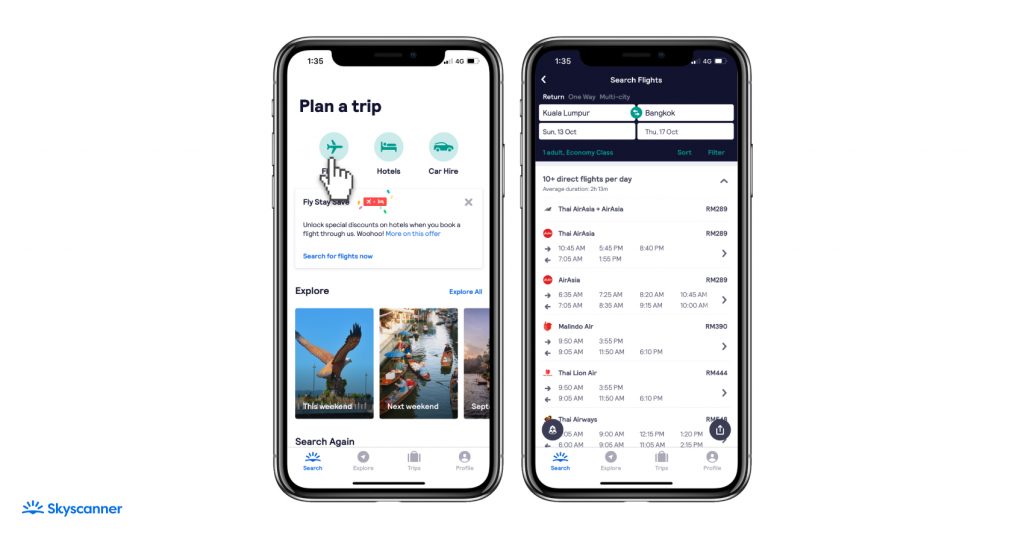
Booking & reservation
Travel apps have already become like a marketplace for modern travelers. Integrate a booking system into the app to let your users book hotel rooms, tickets, tours, transfer, and entertainment. Add convenient filtering and sorting options to your booking system, smart reminders, clear price comparison, and intuitive navigation to maximize user experience.
Navigation and geolocation
GPS-based location service is a must-have feature to include in your app. Travelers need to know their current location to find the right direction to the next spot or know what restaurants, sightseeing, cafes, hotels, and museums are nearby. As a bonus, let your users have offline access to the maps in case of no internet connection.
Listings
Whether it’s hotel rooms, hostels, apartments, sights, tours, or guides, travelers need to read the description and get details about the item they look for. For example, if the app offers room listing, create an item description feature to let owners or hotel managers tell about their property in detail. Photos, videos, reviews, ratings, 3D tours are perfect features to include in the description.
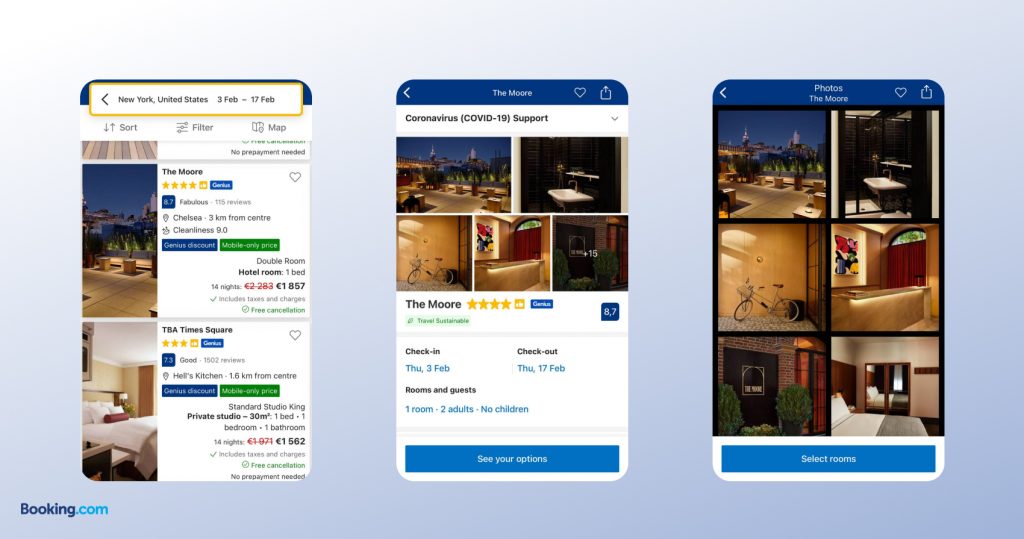
Reviews & ratings
Reputation is vital for the travel business. Consequently, the feature of customer reviews and ratings is necessary for both business owners and tourists. On the one hand, reviews help companies improve services and maintain their reputation. And on the other hand, they allow travelers to choose the best hotel, cafe, or airline according to their preferences.
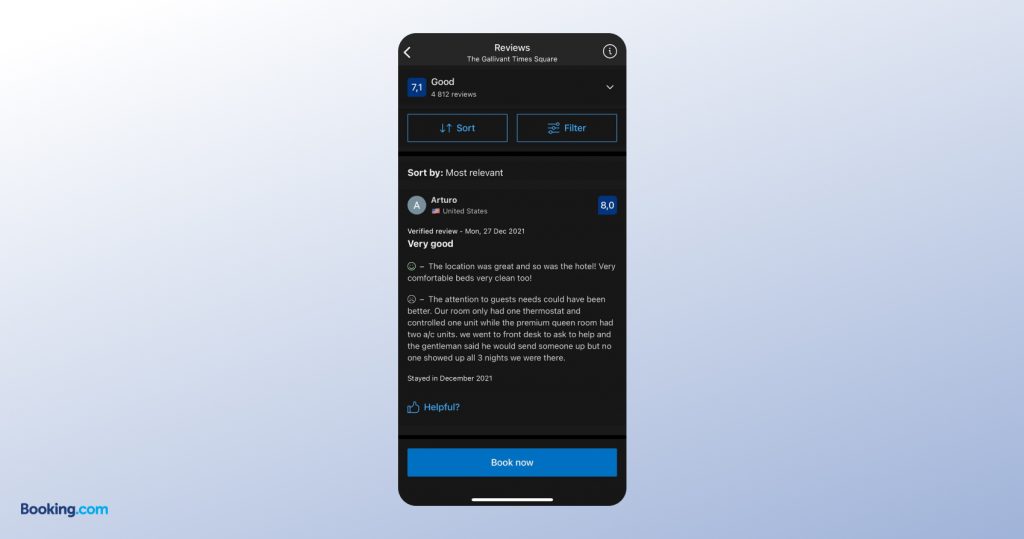
In-app payment system
Booking a property, car, tickets, or tour can be more convenient if users pay for them right away. That’s where a payment system is needed. Integrating a secure payment function in the app facilitates the booking process for the user and makes them more loyal to the company. Consider adding several payment options such as net banking, e-wallets, debit/credit cards, PayPal, WeChat Pay, Alipay, Twint, Apple Pay, and Google Pay to let users from all over the world pay effortlessly.
Currency converter
The currency converter is an extra feature of the payment system. When a user needs to pay for a hotel room, for example, they can convert the sum immediately into a convenient currency. Moreover, when traveling abroad, users usually need to change their cash, so they can use your app to check the actual currency exchange rate.
Chat
Chat is one more useful feature for a travel app. It allows users to chat with property owners or hotel representatives and ask about details directly in the app.
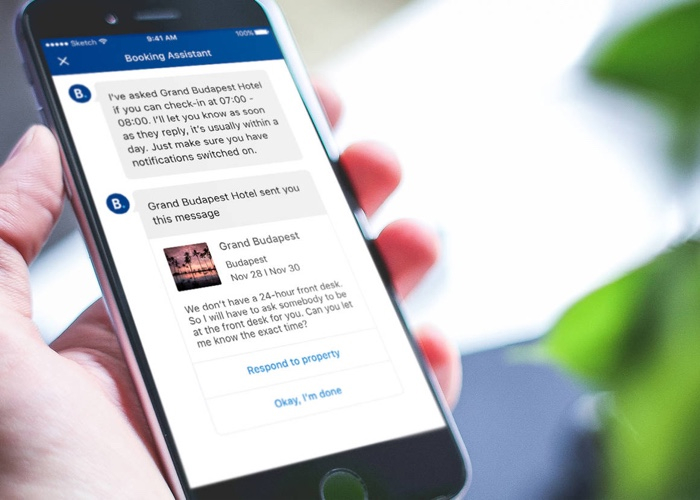
Translator
Integrating a built-in translator into your app is a great way to help your users communicate with local people during the trips. You can also add text scanning technology for visual translation.
Weather forecast
To help your users plan their perfect trip, add the weather forecast feature to your app to inform them about temperature, humidity, weather changes, and expected precipitation.
Transportation
When tourists arrive at a new place, they need transport to get to the hotel from the airport or go around the city. You can add this feature to your app to provide travelers with up-to-date information about public transportation, taxi, and train tickets. Also, you can provide the schedule and prices for even more convenience.
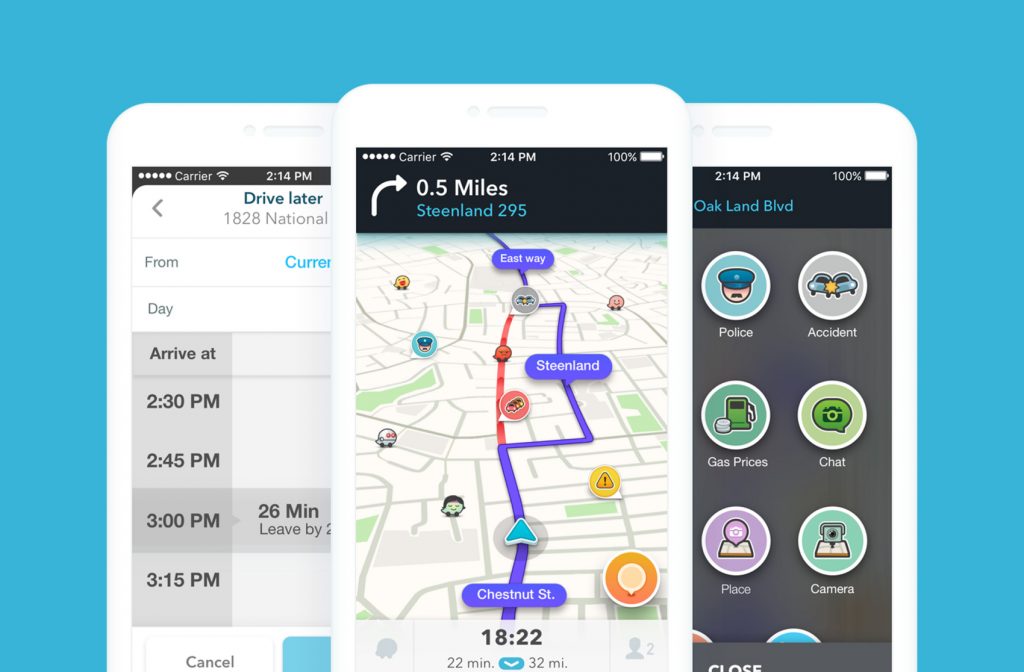
What tech stack do you need to build a travel mobile app?
So, now you know what functionality is required for building a travel mobile app. Let’s further learn about the technology stack for iOS, Android, and hybrid apps. Below, our experts gathered all technologies and tools you may need for travel app development.
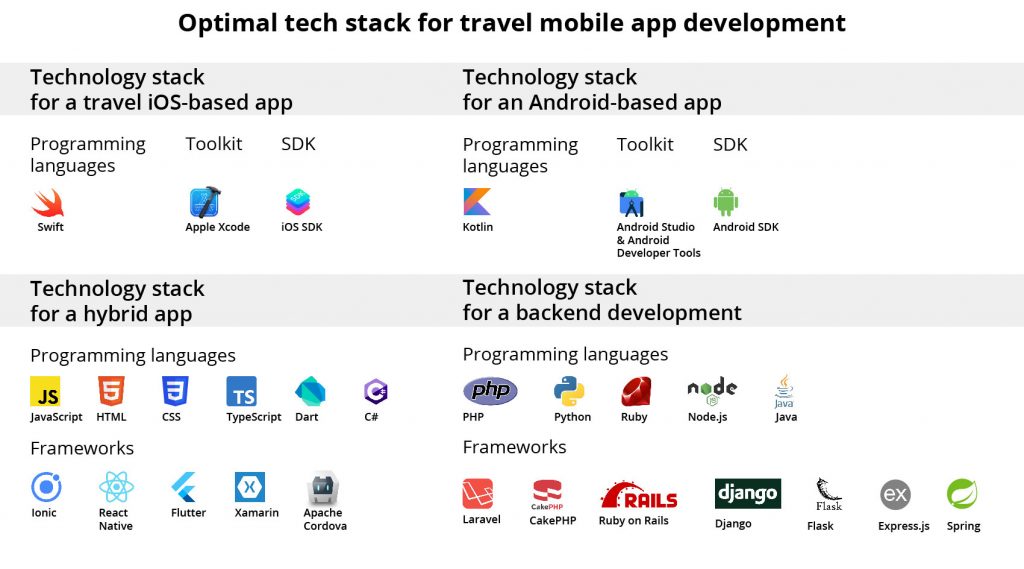
How much does it cost to build a travel mobile app?
To calculate the travel app development cost, consider the number of factors that influence the overall mobile app development cost. And here are the most significant of them:
- Number of app features
- The platform you choose for the app (iOS is usually less expensive than Android because of the number of tests required.)
- The type of app development (native, hybrid, or web app)
- The technology stack (tools, languages, frameworks, libraries, etc.)
- Cooperation model (in-house, outsource, or freelance)
- The size of the team (project manager, business analyst, developers, designers, QAs, DevOps, etc.)
- The development location (the developers’ rates vary depending on the country)
So, let’s take the basic feature set of a travel app and approximate time estimates required to implement it:
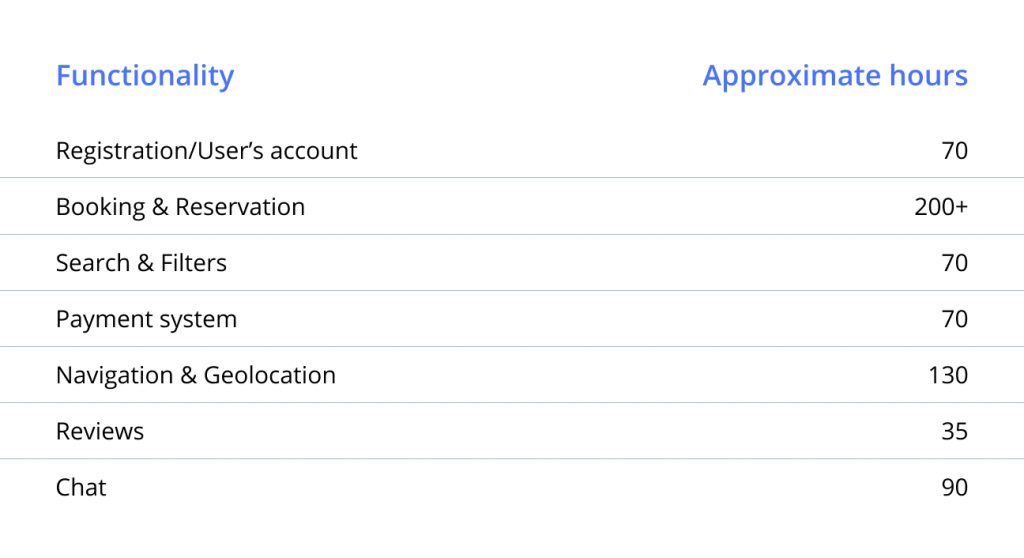
And now let’s consider the most important travel app development cost factor – the company’s development rates. Depending on where a development team is located, the rates may vary a lot.
Thus, we gathered minimum and maximum hourly rates of the five countries below to compare.
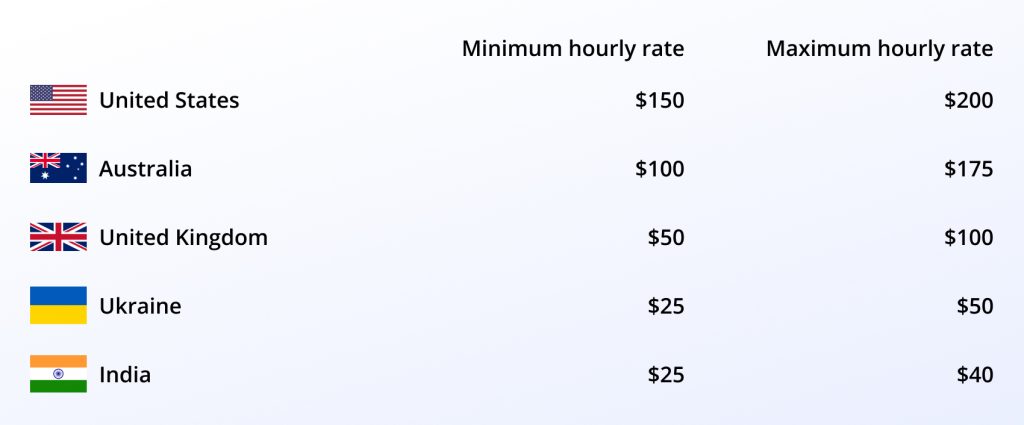
Concerning the team size, here is a list of specialists required to create a travel mobile app:
- 1 Project manager
- 2 Backend developers
- 2 Android developers
- 2 iOS developers
- 1 QA engineer
- 1 UI/UX designer
Finally, when we’ve identified the minimum feature set, hours, and rates, let’s calculate the approximate costs of developing a travel mobile app. We can use the following formula: app development time X hourly rate.
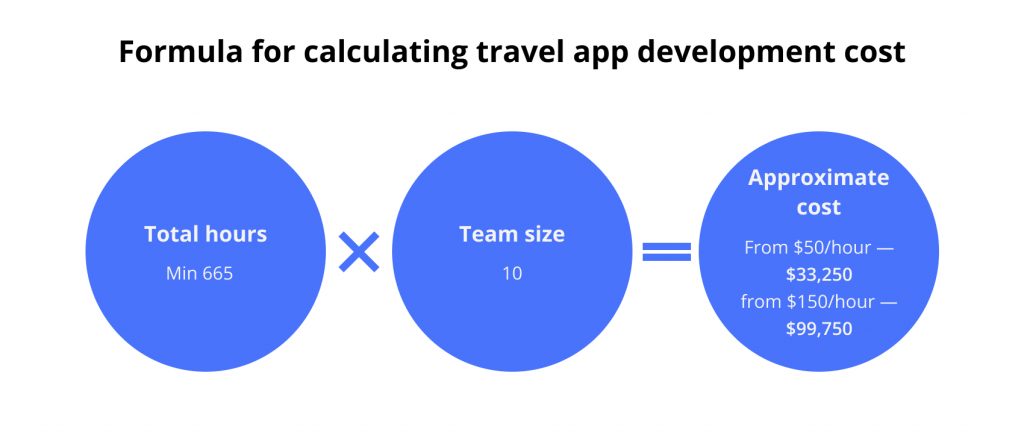
Please note that this estimation is approximate since we don’t know the peculiarities and details of your project. But we’re always open to discussing your idea and providing an exact calculation of travel mobile app development cost.
Tips to consider when building a travel mobile app
We’ve considered the technical side of a travel mobile app so far. Now, we’d like to share our pro tips on creating such apps based on years of experience in this sphere.
Tip #1 Choose a particular niche
As you already know from this article, you can build several travel app types. Consequently, the first thing to start with is choosing your niche. It’s vital to decide what your app will do, what direction to take, who your target audience is, and what problem you’re going to solve. Therefore, focus on one niche (booking an accommodation, buying tickets, or guiding tourists on the trips) and then add extra services if you see the need.
Tip #2 Learn competitors and find your unique value proposition
Done with choosing a niche? Next, proceed with exploring the market and its key players. Knowing your competitors is a powerful weapon in your arsenal. Investigate their capabilities, strengths, weaknesses, what makes them popular, and what they lack. This analysis will help you build a competitive travel app, stand out from other players, and create your value proposition.
For instance, SWOT analysis helps figure out internal and external factors that influence a business. You can employ this framework both for competitors and your project.
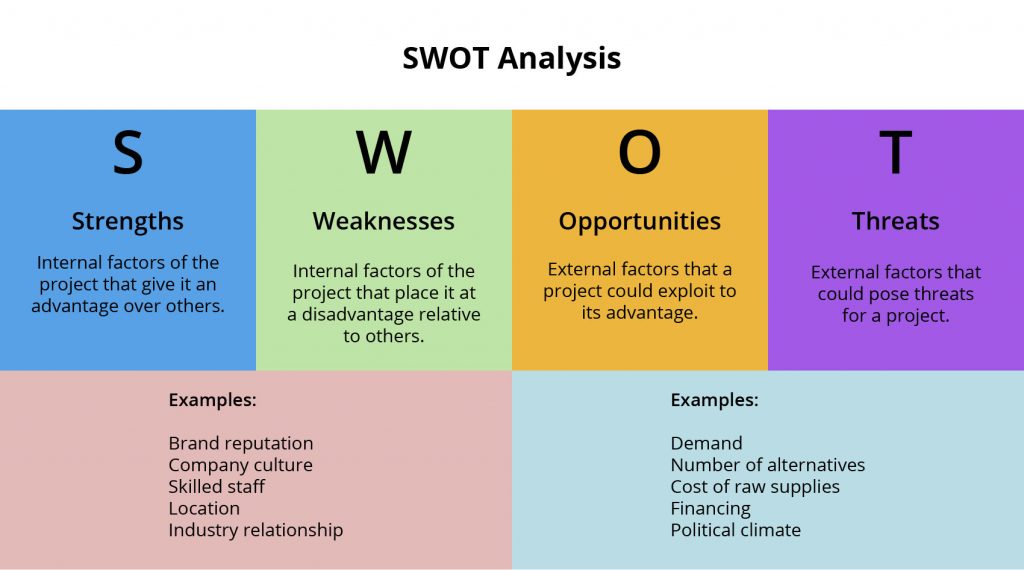
After that, you can work on your strengths, weaknesses, and value proposition. Since the travel apps market is somewhat competitive, consider adding advanced technologies like AR/VR in your app. With their help, you can develop virtual tours of hotel rooms or guiding tours of popular tourist attractions.
Tip #3 Enter the discovery phase
There is a huge gap between a project idea and its implementation. When you’ve already decided on the niche and purpose of your app, it’s a perfect time to conduct a product discovery. Hence, before writing code and designing your travel app, we start with the following stages at Alternative-spaces:
- Analyzing your business idea
- Eliciting requirements
- Reviewing existing documentation
- Verifying project viability
- Defining product complexity
- Working out the app architecture
- Deciding on the best technology stack
- Building a prototype
- Cost estimation
The discovery phase is essential to any product development since it minimizes the risks associated with startup failures and helps businesses reduce development costs. Follow the link below to learn more about discovery phase processes, benefits, and deliverables.
Tip #4 Choose a reliable technology partner
All in all, choosing a development company is vital to your project success. Pay close attention to the company’s skills, relevant expertise in your field, portfolio, customer reviews, and overall approach to product development. But where to look for a reliable development team? Here you go! We gathered a list of resources providing ratings and reviews of top IT companies worldwide:
- Clutch.co
- IT Firms
- Good Firms
- Capterra
For example, Clutch.co is one of the leading rating platforms in IT that provides the most comprehensive information about the companies. It shows clients’ testimonials, hourly rates, the company size, success stories, client and industry focus, and much more.
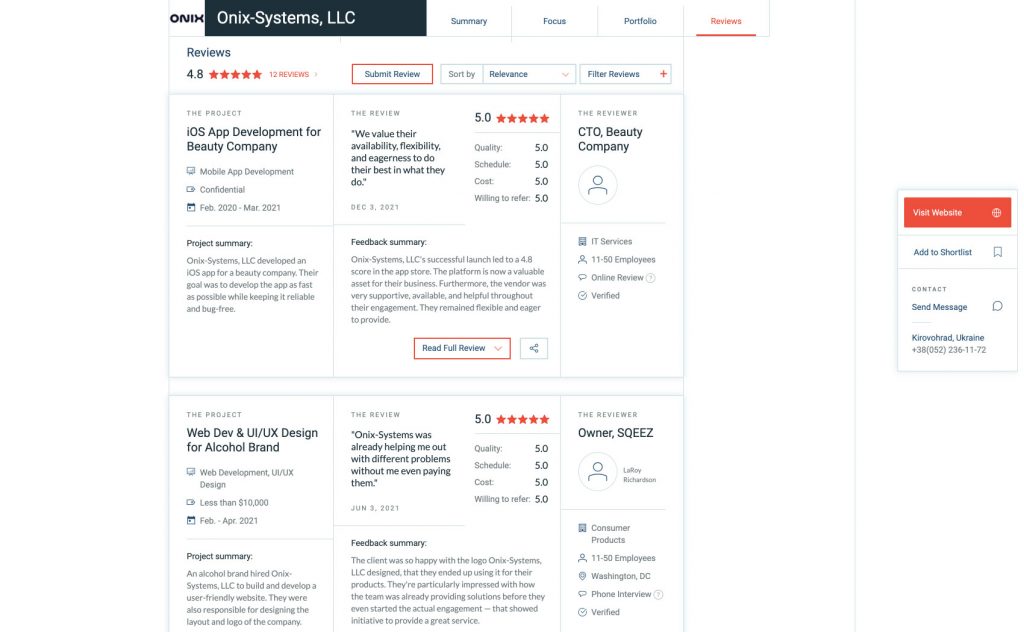
Tip #5 Start with MVP
MVP helps test the viability of an idea and ensure that consumers need the product. This is exactly what the founders of Airbnb did. In 2007, Brian Chesky and Joe Gebbia saw the need for short-term, low-cost housing rentals. They created an ad on a joint rental site and got three responses to the proposal. That case became the starting point for an online platform for finding and posting short-term rental housing ads worldwide. The company’s MVP helped them make sure the hypothesis was correct and grow their business. In 2020, Airbnb had a revenue stream of $3.38 billion with more than 5,500 employees. Thus, MVP helps startups to test their ideas with a minimum of losses.
Alternative-spaces expertise with travel startups
Alternative-spaces is a leading development company with 20+ years of experience designing and developing apps for travel industry businesses. We provide hotel booking development, travel app development, travel agency software development, travel API integration, property management system, business operations prevention, and other connected services. Our mission is to deliver value and tech support to the businesses. Our goal is to build trusting relationships with our clients. Our responsibility is to choose the best technology solutions for your projects.
So, if you are looking for an experienced team to support you on the road to a successful travel mobile app, we’d be happy to provide you with our dedicated development team.
Wrapping up
Travel mobile apps offer greater flexibility and convenience for travelers, hence they’re so popular and demand is growing every day. If you’re ready to build your own travel app from scratch, start with choosing its type, proceed with considering required functionality, assess the technical side, start small with MVP to test your idea, and finally grow your project with a continuous development approach.
Feel free to contact us for more information, and let’s discuss how we can build your best travel app together!
Content created by our partner, Onix-systems.
Source: https://onix-systems.com/blog/how-to-build-a-travel-mobile-app-in-2022 Home
Home